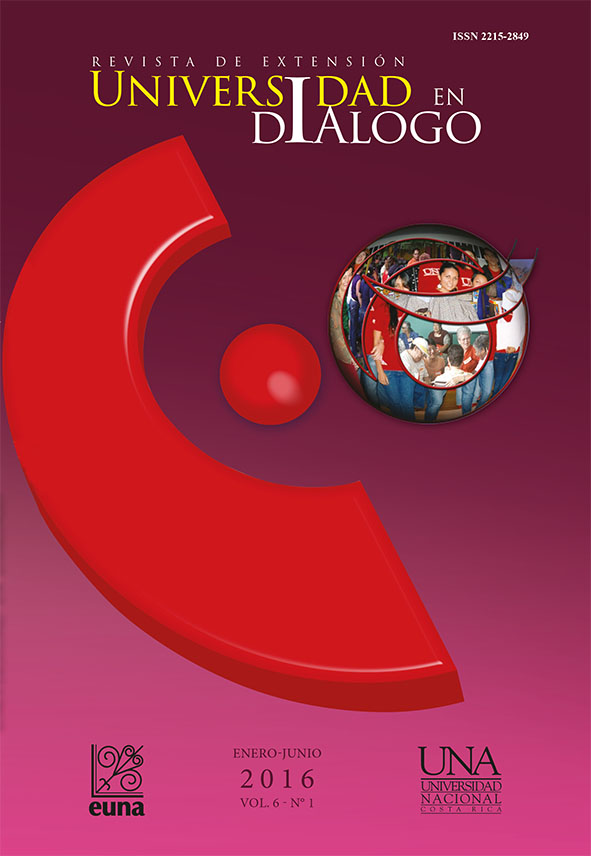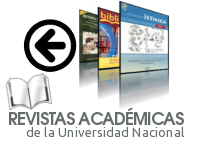Factors that affect the implementation of cooperative learning in public education institutions
DOI:
https://doi.org/10.15359/udre.6-1.8Keywords:
Cooperative learning, English, teaching.Abstract
This work presents the experience of training a group of high school English teachers from public schools, who learn and incorporate cooperative learning as a teaching methodology in the process of language teaching, since it has been found a low implementation of this approach in the classroom. The training was conducted through our virtual classroom (UNA Virtual), so teachers could receive a quality professional tutoring without the necessity to commute and attend to the classes in person. The modules covered: theoretical aspects of cooperative learning, cooperative learning strategies and design of cooperative activities adapted to MEP’s curriculum. Once the training concluded, our high school teachers were asked about the actual implementation of cooperative learning strategies in their classrooms to substantiate and assess the training received. Time and lack of resources hampered the corresponding implementation in a significant number of teachers; however, other teachers succeeded specifically with those language skills that needed more practice. The viewpoints of this group of teachers are presented here with the objective of foretelling difficult situations that may arise in the educational process.
References
Castillo, I. (2009). Reflexiones y retos: La implementación de un modelo pedagógico sociocrítico, papel de las tecnologías para la información y la comunicación. Congreso Internacional de Pedagogía. (pp.48-59) Heredia: Universidad Nacional.
Consejería Presidencial de Programas Especiales República de Colombia. (2009). Guía de sistematización de experiencias (978-958-18-0354-5) Colombia: Ministerio de Protección Social.
Domian, C., Fonseca, H., Lara, R. y Rodríguez, S. (2010). Análisis del proceso de enseñanza-aprendizaje del inglés en el ciclo diversificado y su relación con la prueba de bachillerato (Informe final del proyecto). Heredia: Universidad Nacional.
Kagan, S. (1994). Cooperative Learning. San Clemente: Kagan Cooperative Learning.
Ko, S. S., y Rossen, S. (2010). Teaching Online: A Practical Guide. New York: Routledge.
Krashen, S. (1987). Principles and Practice in Second Language Acquisition Englewood Cliffs: Prentice-Hall International.
Krashen, S. (1988). Second Language Acquisition and Second Language Learning. Nueva York: Prentice Hall.
McCafferty, S. G., Jacobs, G. M., y DaSilva, I. A. C. (2006). Cooperative Learning and Second Language Teaching. Cambridge: Cambridge University Press.
Pallof, R. M., y Pratt, K. (2009). Assessing the Online Learner: Resources and Strategies for Faculty. San Francisco: Jossey-Bass.
Palloff, R. M., y Pratt, K. (2005). Collaborating Online: Learning Together in Community. San Franciso: Jossey-Bass.
Roberto, J. A. (2010). La adquisición de segundas lenguas en ambientes virtuales. Nuevas perspectivas para la enseñanza de segundas lenguas a través de las nuevas tecnologías. Recuperado de www.cuadernoscervantes.com
Rodríguez, S. (2008). Constructivism and ICTs to Improve Language Teaching. Letras, 44, 167-176.
Rodríguez, S. (2009, octubre). La realización de talleres eficaces de escritura en inglés utilizando el aula virtual de la Universidad Nacional. Comunicación presentada en el Primer Foro de Académicos Innovadores. Universidad Nacional, Heredia.
Rodríguez, S. (2011, octubre). La evaluación de los cursos virtuales: Estudio de caso. Comunicación presentada en el Segundo Foro de Académico Innovadores, Universidad Nacional, Heredia.
Rodríguez, S. y Rojas, F. (2010, marzo). Potencialidades del uso de blogs en la enseñanza del inglés, algunas perspectivas en la UNA. Comunicación presentada en el Primer Congreso Internacional de Educación Superior, Universidad Nacional, Heredia.
Santiesteban, H. (2012). Sistematización de experiencias. Taller. [Presentación Power point]. Taller realizado en la Universidad Nacional, Campus Omar Dengo.
Shoemaker, C. and F. Shoemaker. (1991) Interactive Techniques for the ESL Classroom New York: Newbury House.
Terrell, T. (1982). The Natural Approach: An Update. Modern Language Journal 66 : 121-132.
Trujillo, S. F. (2002). Aprendizaje cooperativo para la enseñanza de la lengua. Recuperado de http://meteco.ugr.es/lecturas/cooperacion.pdf




